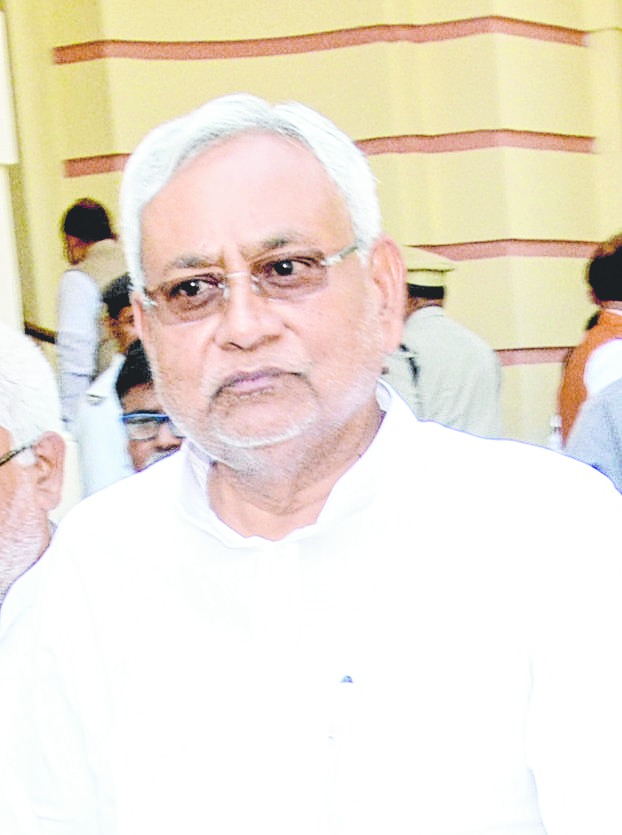
Patna, Aug. 10: Chief minister Nitish Kumar today quoted Mahatma Gandhi to justify total prohibition and harsh laws to enforce it.
In an article he wrote for the NDTV website - headlined "I Want To Set The Record Straight On Bihar's Liquor Ban" - Nitish said "vested interest has gone into a massive overdrive to misinform people" about the stringent new prohibition bill that is waiting for the governor's approval.
He quoted Gandhi as having written in Young India - an English language weekly the Mahatma published from 1919 to 1932 - in 1931: "If I was appointed dictator for one hour for all India, the first thing I would do would be to close without compensation all the liquor shops."
He also quoted Gandhi as having said: "Nothing but ruin stares a nation in the face that is prey to the drink habit. History records that empires have been destroyed through that habit."
The CM's passionate defence comes at a time when he is under fire for bringing in a "draconian" law to enforce prohibition, when cash-strapped Bihar is reeling from the impact of losing around Rs 5,000 crore excise revenue, and its growth rate is plunging.
Nitish defended the provisions of the Bihar Prohibition and Excise Bill, 2016, that have been called "Talibani" and said many of them were borrowed from laws in Maharashtra, Gujarat, Delhi, Karnataka, Madhya Pradesh and a model excise Act circulated by the Union government.
Bihar Women's Network, which comprises 1,000 members from 15 women's organisations, has slammed the state for provisions in the bill according to which women too would be responsible for a family member found drunk. Nitish denied the bill puts women at risk of arrest for their husbands' drinking habit. "The bill, rather, protects the women of the household from a male adult who wishes to pin the blame away from him to any other member of family," he wrote. "Those criticising this may care to advise as to the person to be arrested if, in a house, bottles of liquor are recovered, and no member of the family owns up to it. They should also enlighten us who should be arrested in a case if the house is in the name of the wife. Should the police either return empty-handed or commit a further travesty of justice by arresting the wife, knowing fully well that in almost all the cases, it is the husband who drinks? Those criticising are also presuming that the adult male member who is actually drinking and violating the law, will, when caught, be inhuman and cruel enough to share the accusation with his wife and adult children."
He said there will be no half measures in Bihar; he will stand his ground on prohibition.
"What sets the liquor prohibition apart is that no one in the past has been able to deliver it totally. The liquor lobby cheers to this one fact more than anyone else. I am determined to change this track record of public policy," Nitish said.
He pointed out that the Constitution's Directive Principles of State Policy mandate the State to strive towards prohibition, and that even the Supreme Court has held that there is no fundamental right to do business in intoxicants and the State under its regulatory power has the right to prohibit every form of activity in relation to intoxicantsand their manufacture, storage, export, import, sale and possession.
He elaborated on what he called his government's meticulous planning and efforts to implement prohibition by involving more than 1.19 crore guardians of children studying in government schools, 5 lakh self-help groups and 20,000 village organisations.
He lashed out at the media, saying countless articles have proclaimed the ban will not work, but "for every word that has been written against the liquor ban... there are numerous real families - women and children who have cheered for prohibition in Bihar and rest of India."
Some, he added, "are selectively criticising few provisions of the new Act without reading the same holistically."










